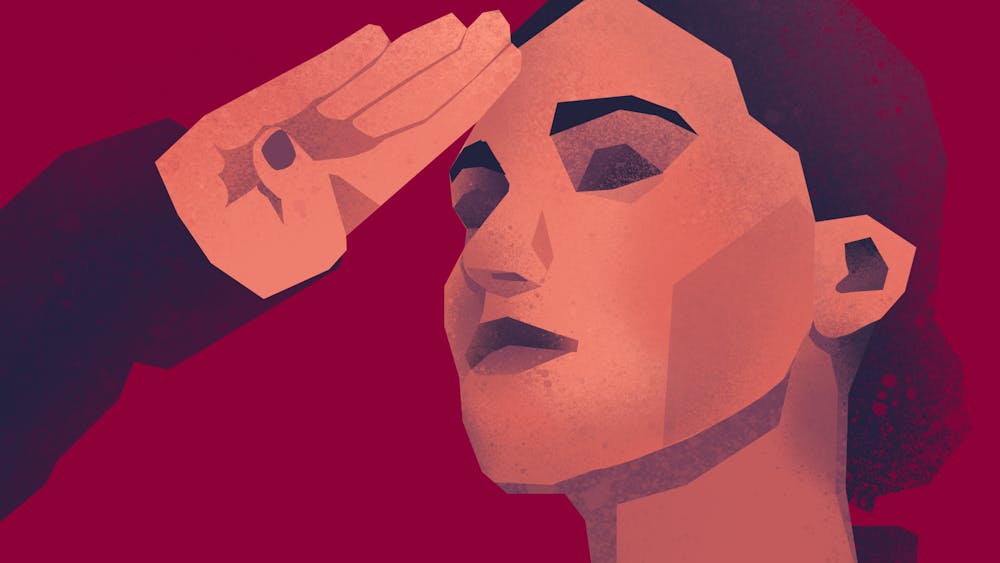
“Who are you voting for?” is perhaps the most insidious and unintelligent query one is often asked in modern political culture. The motive behind it often isn’t genuine curiosity or the intellectual desire to engage in civil discourse and debate, but to place others within one of two laughable categories: the madman who seeks to destroy the Republic, or the radical liberal that believes babies can be “aborted” after birth.
It is no secret that American politics has become increasingly polarized over the past few decades. However, the ideological gap between members of the two-party system has grown so great that many voters are favoring foreign enemies over fellow Americans. The environment surrounding how Americans interact with their systems of government has evolved from one of questioning policy to questioning character and launching personal attacks against the opposition, making politics the blood sport it is today.
I mention this not because I am a quirky political science major that just interned at The New York Times and speaks, eats, and breathes Penn in Washington. Rather, I provide such context because we as a university community have conformed to one of these ideological tribes — in one way or another — and decided that our subscription to those ideas trumps the views, however nuanced, of those who disagree.
In a 2018 opinion piece, 2020 College graduate Lucy Hu argued, “One of the main reasons we like diversity in thought is that through the vehicle of debate, we can achieve the end goal of better societal outcomes … Perhaps limiting conservative viewpoints serves to halt the perpetuation of traditionally stronger voices, giving a voice to those who have been historically silenced.”
And it is precisely this mentality I take issue with, because while we claim to be champions of “diversity” and all the buzz terms that go with it, we simultaneously say “By diversity, we mean the voices we decide are valuable,” and “On issues of minorities’ rights, perhaps a one-sided conversation ensures the better societal outcome.” And who decides which side provides such an outcome? Who said what one group views as better is, in fact, better? The people who subscribe to that group’s ideology? We seek to acknowledge underrepresented voices by actively limiting conservative viewpoints, which we assume are only made by traditionally stronger voices (i.e., white men)? Give me a break.
This is not to say that the voices of minorities shouldn’t be validated or that I ought to walk around with a sign screaming “WHITE LIVES MATTER TOO” (my arms would tire way too quickly). On the contrary, every single voice matters, but that’s what I’m trying to emphasize: every voice matters.
By limiting views we disagree with in favor of voices we deem valuable, we are merely repeating the mistakes of history. Moreover, we push ourselves even further away from the equity we act to value by still discriminating based on race and ethnic background (racial minority equals underrepresented equals valuable, while white or male equals overrepresented equals danger to better societal outcome). Isn’t that equality a bit simplistic?
A clear lesson from the 2016 presidential election is that you can’t shut out half of the country and expect to not feel the effects of doing so. But, perhaps an even deeper truth lies in how we divided ourselves into halves to begin with. When discussing politics, you’ll often hear the phrase “political spectrum,” which is meant to pinpoint your political leaning on some abstract gradient based on your views. However, isn’t that merely a social construct that does nothing but reduce ourselves to mindless minions that serve our Republican or Democratic lord?
The social construct assumes our ideas are uniform and can fit on a spectrum, that our notions of abortion, gun rights, or education ought to fit a certain pattern. But, if you ask around, you’ll rarely find someone who fits the exact mold the so-called political spectrum is proposing. Abortion is a perfect example. How many people do you know that are for a total abortion ban? How many people do you know that are for abortion the day before birth? How many of each are for relaxed gun control? What about education?
What I’m getting at is that the diversity of views comes from the individual, not a party or group. This supposed spectrum of political views is nothing more than a ploy employed by politicians to divide Americans, so they can poll better for high office. It doesn’t exist.
It is important to understand that I write all this not to encourage hatred or entice you into a senseless, endless argument. My goal is to ultimately highlight that as both students in higher education and citizens of a nation that works towards the ideal and self-evident truth that “all men are created equal,” we have a responsibility to think beyond the flowery fluff and broken promises of politicians. We have a responsibility to not take them at their word or to blindly subscribe to their propaganda that demonizes our fellow citizens. And, above all, we have a responsibility to acknowledge that the political spectrum is nothing more than a device meant to divide us and that, after all the arguing, we can still live amongst each other peacefully and with respect.
ZAID ALSUBAIEI is a College sophomore studying economics from Al-Khobar, Saudi Arabia. His email address is zaidsub@sas.upenn.edu.
The Daily Pennsylvanian is an independent, student-run newspaper. Please consider making a donation to support the coverage that shapes the University. Your generosity ensures a future of strong journalism at Penn.
Donate







